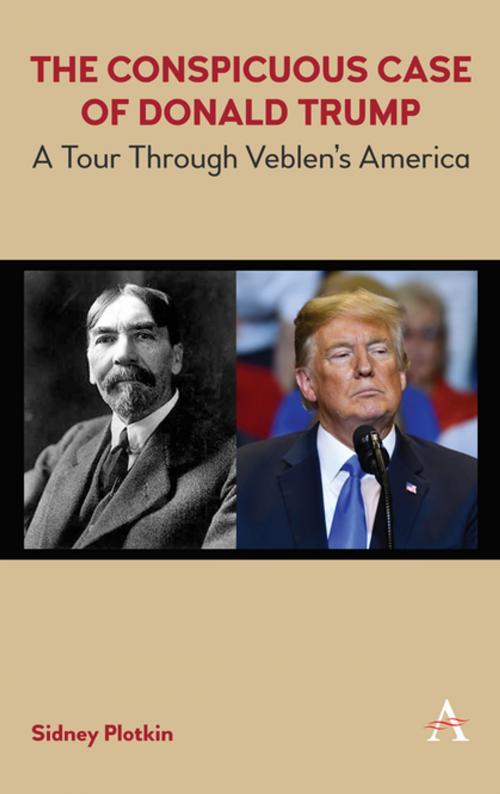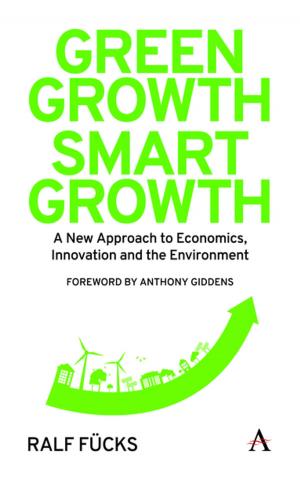Veblens America
The Conspicuous Case of Donald J. Trump
Nonfiction, Social & Cultural Studies, Political Science, Government, Elections| Author: | Sidney Plotkin | ISBN: | 9781783088744 |
| Publisher: | Anthem Press | Publication: | December 28, 2018 |
| Imprint: | Anthem Press | Language: | English |
| Author: | Sidney Plotkin |
| ISBN: | 9781783088744 |
| Publisher: | Anthem Press |
| Publication: | December 28, 2018 |
| Imprint: | Anthem Press |
| Language: | English |
The astonishing political rise of Donald Trump sent seasoned observers scurrying for clues and explanations. How did Trump happen? Of course no one guide will suffice, but a surprisingly helpful one, suggests Sidney Plotkin, is the early twentieth-century American radical, Thorstein Veblen. In remarkably vivid ways, Veblen understood the enduring American allure of figures such as Trump. [NP] As Plotkin shows in “Veblen’s America,” Trump’s booming persona springs noisily out the country-town hucksterism that Veblen sardonically depicted, its fabulist habits fitting Trump’s “truthful hyperbole” to a tee. But Veblen saw darker, more ominous forces in American life too––habits of barbaric violence, misogyny and xenophobia––forces that foreshadowed Trump’s appeal to what Veblen called a deep “sclerosis of the American soul.” New Deal liberalism helped mute the strains, but economic crisis and the neoliberal response aggravated them. Donald Trump’s appeal to hate made their revival unmistakable.
To shape the study, Plotkin introduces readers to Veblen’s critical institutional theory and its application to both the American case generally and to the Trump family story in particular. With Veblen as foundation, he examines three generations of Trumps as they engage the forces of American development: Friedrich Trump, the hard-scrabble immigrant grandfather, on the make in the gold mining towns of the Pacific Northwest; Fred Trump, the father, who showed the way in using the loose rules of American housing policy to become a captain of local industry; and Donald J. Trump himself, who, having first burst onto the New York City scene as a burgeoning celebrity entrepreneur of the neoliberal era, then turned against neoliberal globalism, proclaiming himself the one and only savior of working-class America. As Plotkin shows, Trump’s poisonous ascendancy exposed a barbaric malevolence that has long torn at the fabric of American democracy and its aspirations for equality.
The astonishing political rise of Donald Trump sent seasoned observers scurrying for clues and explanations. How did Trump happen? Of course no one guide will suffice, but a surprisingly helpful one, suggests Sidney Plotkin, is the early twentieth-century American radical, Thorstein Veblen. In remarkably vivid ways, Veblen understood the enduring American allure of figures such as Trump. [NP] As Plotkin shows in “Veblen’s America,” Trump’s booming persona springs noisily out the country-town hucksterism that Veblen sardonically depicted, its fabulist habits fitting Trump’s “truthful hyperbole” to a tee. But Veblen saw darker, more ominous forces in American life too––habits of barbaric violence, misogyny and xenophobia––forces that foreshadowed Trump’s appeal to what Veblen called a deep “sclerosis of the American soul.” New Deal liberalism helped mute the strains, but economic crisis and the neoliberal response aggravated them. Donald Trump’s appeal to hate made their revival unmistakable.
To shape the study, Plotkin introduces readers to Veblen’s critical institutional theory and its application to both the American case generally and to the Trump family story in particular. With Veblen as foundation, he examines three generations of Trumps as they engage the forces of American development: Friedrich Trump, the hard-scrabble immigrant grandfather, on the make in the gold mining towns of the Pacific Northwest; Fred Trump, the father, who showed the way in using the loose rules of American housing policy to become a captain of local industry; and Donald J. Trump himself, who, having first burst onto the New York City scene as a burgeoning celebrity entrepreneur of the neoliberal era, then turned against neoliberal globalism, proclaiming himself the one and only savior of working-class America. As Plotkin shows, Trump’s poisonous ascendancy exposed a barbaric malevolence that has long torn at the fabric of American democracy and its aspirations for equality.















